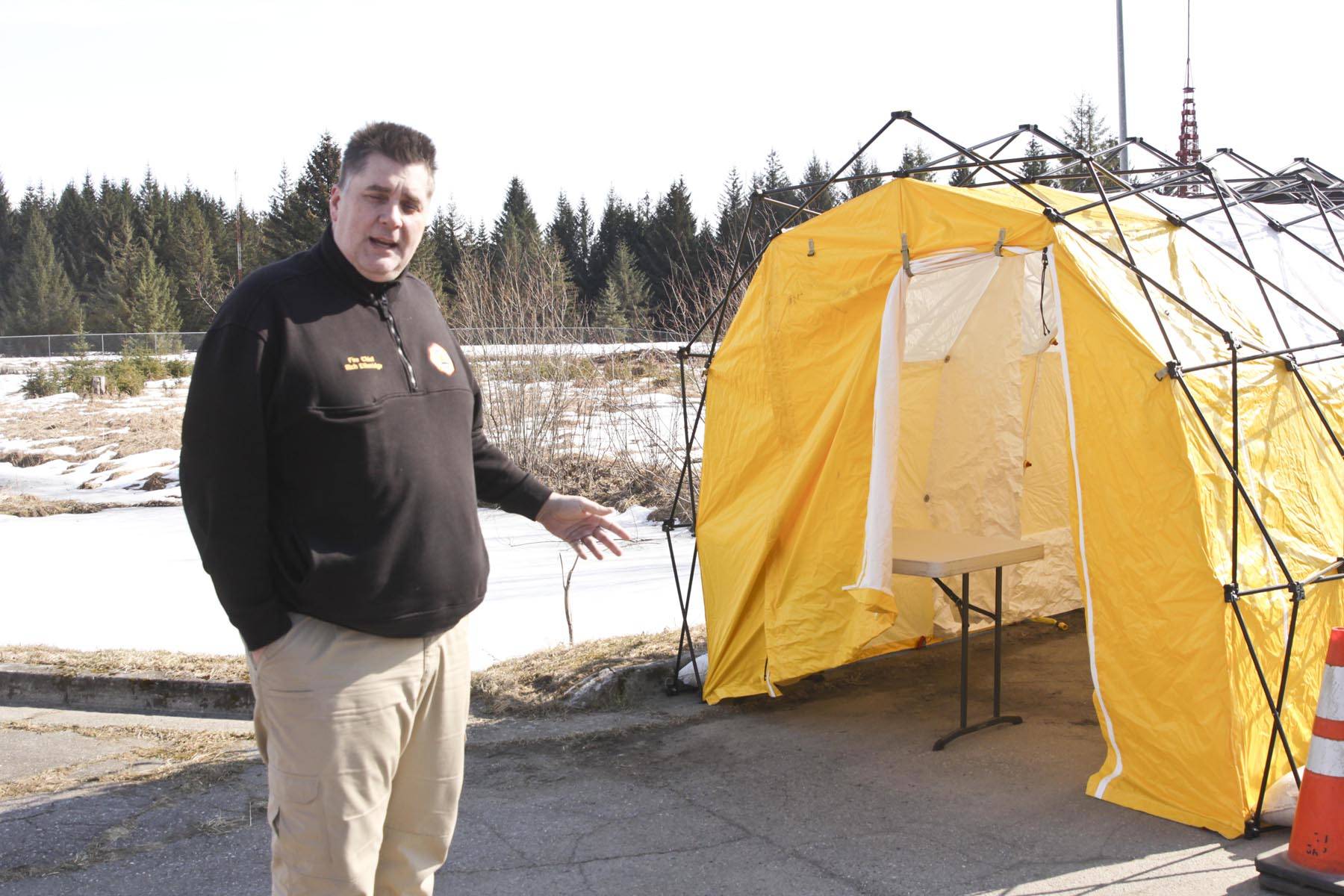Capital City Fire/Rescue set up an appointment-based coronavirus testing site at the Hagevig Regional Fire Training Center, going live Tuesday afternoon.
“We’re treating it like a HAZMAT response,” said Community Assistance Response and Emergency Services manager Joe Mischler. “They’ll do the test while inside their vehicles.”
The drive-thru site is the second part of a system. The first is a hotline at 586-6000, which Juneau residents concerned that they’re displaying COVID-19-like symptoms can call in to see if they meet the criteria for testing.
“We’ve got a hotline published,” said CCFR Fire Chief Rich Etheridge. “All the school nurses are the ones manning the hotline.”
Mischler said the samples collected will go to Bartlett Regional Hospital to be sent out for testing with all other samples collected there.
“Right now, we’re following the CDC (Centers for Disease Control and Prevention) guidelines for who gets tested,” Mischler said. “The goal is so they don’t go to the ER.”
Decentralizing operations from the emergency room is intended to keep more healthy people healthy by keeping sick people away from people suffering from injuries or other illnesses and emergency personnel. The CCFR site is the first phase of that.
“It’s not going to the hospital. It’s not going to the emergency room,” Mischler said. “This is a much-preferred way of doing it.”
[Juneauites told to hunker down, second COVID-19 case confirmed]
Pushing testing to locations away from BRH allows the city to leverage its assets and prevents tying up valuable medical personnel who are needed for more urgent medical care. Equipment, training and tents came from CCFR’s HAZMAT team, captained by Cheyenne Sanchez.
“That’s one of the things we’re trying to do with community paramedicine, fill the gap,” Mischler said. “The biggest users to our system don’t have an emergency.”
Residents with an appointment will be able to drive up, fill out paperwork and get tested without even leaving their cars, Mischler said. Right now, the capability of the site is to test 10 people per day in a four-hour shift, but that could expand to as many as 80 appointments once personnel are trained and if the need presents itself.
“The way the people have pulled together to make this happen, the community, is just amazing,” Mischler said.

